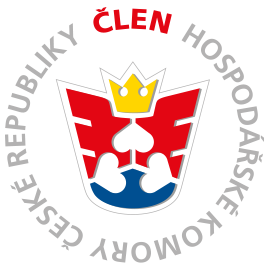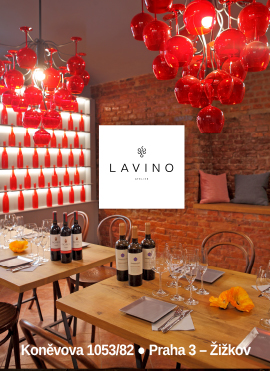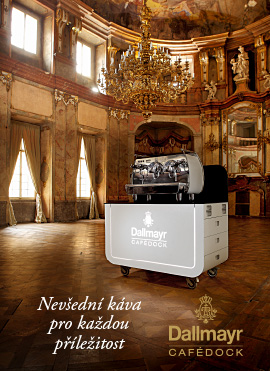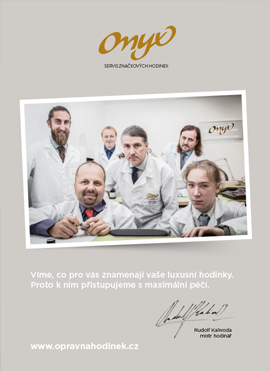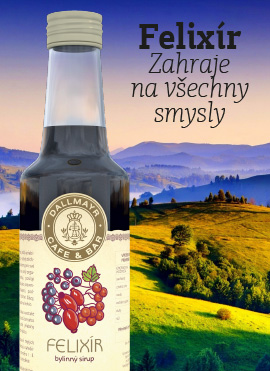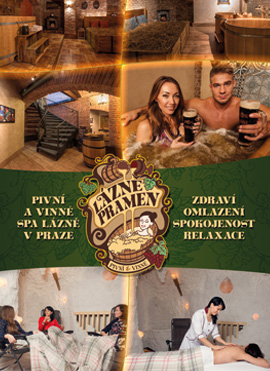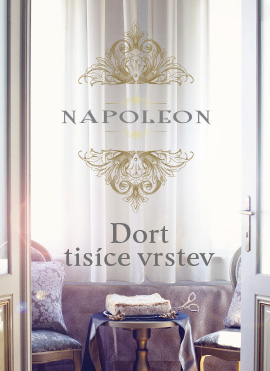Pavel Batel
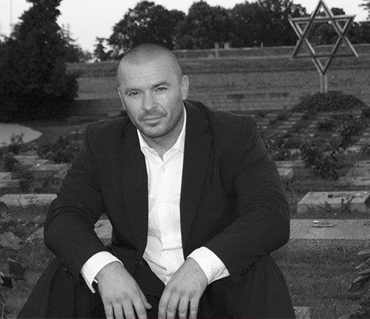
An elite bodyguard for royal families, Hollywood stars, and mafia families, martial arts instructor for tactical units and MMA fighters, historian and tour guide in concentration camps, Pavel Batel, traded a life of action for a pen and dramatic situations for his desk. His literary debut The Tour Guide’s Tale (Příběh průvodce) was awarded a prize by Charles University in Prague as a “unique work” which opened an entirely new world for the fledgling author. Critics write that the “combination of brilliant narrative craftsmanship, fiction, and reality are a unique hallmark of his books and provide an extraordinary reading experience.” The action comedy Illegals (Týpci) became a bestseller in Slovakia and the English translations of both of these works are slowly gaining their place in the sun. However, the author says that his third book Yom Kippur and the Last German Knight (Jom Kipur a poslední německý rytíř) is the one he takes the greatest pride in. This work tells the stories of forgotten heroes of the Second World War. The narrative flows between real historical events and fiction, and it is based in the testimonies of Holocaust survivors that the author sought out and interviewed himself.
How did it happen that a bodyguard, bouncer, and martial arts instructor became a distinguished writer and historian?
This question needs a very long answer. I think that fate takes us where we belong. Everything began in my childhood – the entire story. My stepfather was a historian, and my real father was a journalist and writer. My stepfather was a psychopath who beat my brother and me every day. He was very tall and weighed 130 kilograms. By contrast, my real father was a humanitarian full of compassion and wisdom. He wouldn’t have harmed a fly with even an unkind word. Both were mentally ill. I learned from them and perceived the thin line between good and evil, the fundamental pillars of all my books.
So it was a violent childhood that led you to work as a bodyguard and martial arts instructor?
Yes, this was a very intense start. It created a reflex in me to protect my weaker brother on the streets and then at home. When I was eight years old, our stepfather moved the family from Bratislava to the outskirts of Prague. We were the only Slovaks in the entire neighborhood, and the local hooligans really let us know what they thought about that. I was lucky to have a good karate teacher. I helped him in the school, and he taught me how to be insensitive to pain by using strong exhalations, and how to block blows. When I was fourteen, I knocked my stepfather out because he wanted to throw me over the balcony. A special court then sent me away to a military high school. 800 teenagers were locked up in this military environment and half of them were practicing martial arts: it was a kind of little Sparta. Some of our fighting teachers were masters from North Korea and the matches we held were full contact without almost any protective gear. The only things that interested us students were fighting, food, sleep and studying – because getting good grades earned us more free time and therefore better martial arts training.
Did I understand correctly that you are a Slovak?
I’m neither a Slovak nor a Czech. I’m not a Belgian after my mother or a Serb after my grandfather. I’m not a German after my grandmother or a Jew after my father. I am a human being and I try to be a good person. This is the basic idea of all the heroes in my books, with whom I fully identify. The essence of the future of all humanity is hidden within them.
So, what are your books about, and who are their heroes?
During the interviews with the concentration camp survivors and while doing archival research I discovered powerful stories of forgotten heroes. For example, the Jewish athlete Fredy Hirsch and the Nazi colonel Albert Battel, who was awarded the “Righteous Among the Nations” honorific title in memoriam. He refused to give Jewish families up to those who intended to kill them. He took a stand against the SS and was prepared to defend them in an impregnable fortress under the codex of the German Order of Knights that has protected the defenseless for centuries. These Jewish women and children were thus under the protection of the Wehrmacht! It’s been forgotten that there was a secret war going on between the German Army and the SS. Battel’s case was taken all the way up to Hitler himself.
That is interesting; we never learned about it in school. What was Fredy Hirsch famous for?
No, you didn’t learn about this. That’s because history is written by the winners. Inconvenient facts that raise controversy are not, and never will be put into textbooks. They are only discovered by new generations of university students, often unintentionally while they are working on master’s or doctoral theses. With jaws on the floor, they then ask their professors how it’s possible that no one ever speaks about these things. Fredy Hirsch, a young Jewish athlete, managed to save more than 500 children inside the worst place humanity ever managed to construct in its entire history: Auschwitz II – Birkeuau. In the maw of hell itself he created a small oasis of fairy tales, fantasy, and moral good. This is the most powerful story from the Holocaust, and it deserves to be known by everyone.
But you don’t only write historical dramas from the war, right? The book Illegals is an action comedy.
Yes. I feel that writing forgotten stories from the war is my duty. But otherwise I enjoy madcap comedies. I am still finishing up a fourth book about the Holocaust and then there will just be funny stories from the life of a European bodyguard. I have a lot of those.
Would you like to mention one for our readers?
Of course. After one difficult job I decided to go relax at a Taoist monastery in the sacred Wudang Mountains in China. I got all the way into the forbidden zone. The monks accepted me because they had to – I knew that well. I was expecting to train in Kung Fu and breathing exercises there. I slept in a small room with a tiny window with a glorious view of a hill full of tangerine trees. Only one of the monks spoke a little English, but I could not understand a word he was saying when he was trying to explain their rules. The misunderstanding began at three-thirty in the morning. I was still exhausted from the eight-hour expedition across the ancient stairs and I said to myself they’re crazy to wake me up so early in the morning. I repeated the word “breakfast”. I sent the monk away, saying that I will take my breakfast after I wake up, but at eight in the morning no one was to be found in the monastery. They had all gone to train in the mountains. I found my breakfast in the room with a large statue of a sitting man with a beard.
I ate the vegetables and skipped the rice because it was too dry – I make it better at home. But then when I was walking out into the courtyard with a tangerine in my mouth the monks who were returning from their training spotted me. There was a whole mob of them. They began to yell something at me, to grab their heads, and run back and forth. Then they surrounded me and pressed me against the gate. At first, I didn’t understand what was wrong and it seemed funny because they were a head shorter than me and they reminded me of angry dwarves. They said I had eaten the food of Master Lao Tzu, the founder of Taoism – and then I got it. There had been a strong language barrier, but I tried to explain to them that Lao Tzu has been dead for centuries and that the statue certainly couldn’t have eaten anything. They threw my backpack after me and closed the gate. Then I stayed at the Wudangshan hotel for three days. The trip there from the monastery had really kicked my ass. I couldn’t walk, so I watched the Chinese television. Nearly every series was shot in a military setting. It was interesting.
What is it like to spend time with Hollywood stars?
It was fascinating, and they taught me one of the most important things I’ve learned in life. One piece of wisdom, and I saw the same thing when I was interviewing concentration camp survivors. It is about strength of mind, self-reliance, and confidence in one’s self. About erasing the tiniest doubts that hold us in the crowd with the others. And also about the strength of visualizations…
How do you cope with the current situation of the pandemic? How do you spend your time?
I write, I go exercise in the forest, I spend time with my daughter, or I go see my clients in their homes, where we have continued to practice martial arts after they closed the gyms. As they say in Aikido, “your training ground is right where you’re standing.”





